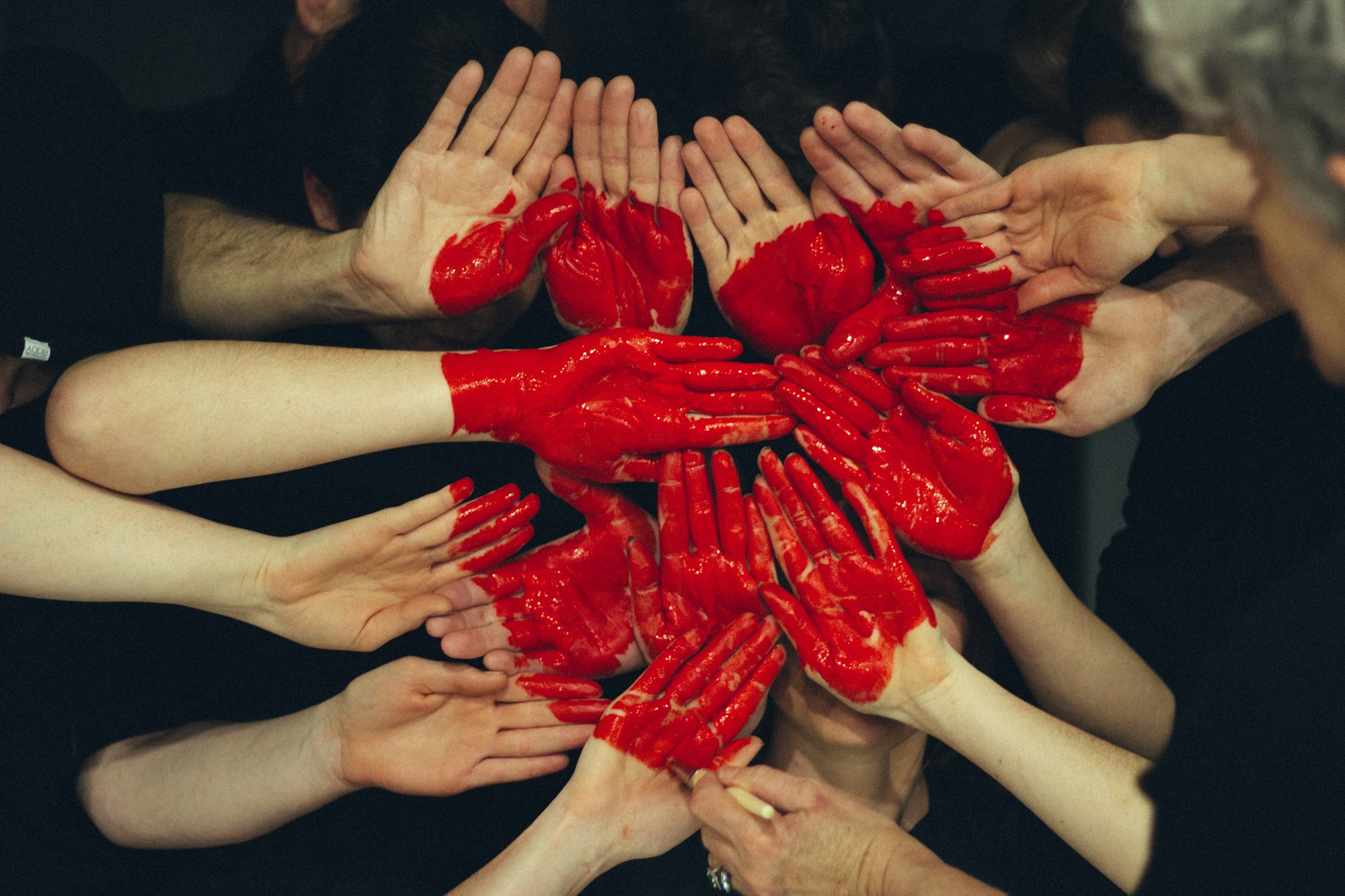Recently, I was invited to a panel to talk about my graduate training experiences with prospective students applying to my graduate school. During the Q&A, someone asked: "What has been the most challenging aspect of graduate school?" At first, I thought about answering the question by talking only about science: the intense course workload, or experiments that have not worked for weeks. Instead, I decided to open up and describe what has been the actual challenge for me: Life continues while you are trying to complete your degree, and will at some points affect your performance and well-being. Many personal events will happen during your training years and, unfortunately, academia will try to make you deprioritize all of them and push you to focus solely on your training.
Life continues while you are trying to complete your degree, and will at some points affect your performance and well-being.
I started my Ph.D. at a university in New York in 2017, a few weeks after Hurricane Maria devastated my homeland, Puerto Rico. Like most other Puerto Ricans in the diaspora, I was not able to contact my family for almost a week. The uncertainty and worry rendered me mentally absent and unable to focus in lab for weeks. Some of my colleagues lost loved ones, had to deal with financial issues, or had to take time off for surgeries and medical procedures and, on top of that, had to deal with racial and ethnic exclusion. These days, most of the world is dealing with the COVID-19 pandemic. All these non-academic experiences merge with the rigid structure of academia, where faculties and principal investigators (PIs) have the power to decide the fate of their trainees. Trapped in these contexts, it is easy to develop a mental health crisis.
However, there are ways to support your well-being in graduate school. Here, I share what I think are the three key points:
1. Be kind to yourself. During my senior year of college, I was overwhelmed with classes, applications and my research obligations. I didn’t take any time to rest or reflect. As a result, I started developing severe anxiety attacks, failed a course, and didn’t get accepted into any graduate program that cycle. Sometimes most of the stress and pressure are rooted within ourselves. I was seeking perfection, and wanted to excel at too many things at the same time. I didn’t want to look vulnerable and seek help until I hit rock bottom. The way I overcame this situation was by being kinder to myself, and seeing rejections as an opportunity for growth. Being kind to myself meant changing the narrative of my training from competition to work progress: some days I can do great, others not so much and that is OK. The way that I framed goals and the definition of success changed, so that I knew I would be working toward my goal day by day. Also, I learned that pursuing higher education in a STEM field is a long road, that require persistence and consistency to succeed - I called this PPP (Passion, Patience, and Persistence) -. Lastly, I learned that many people will not believe in you at first, but you need to trust your gut and never underestimate your capabilities.
Look for a mentor who you admire not only for their science, but for all of their traits.
2. Look for mentors who care about you. The main purpose of graduate school is training. Look for a mentor who you admire not only for their science, but for all of their traits. A person who is invested in your success, with the capability of listening and understanding. Nowadays, science is so dynamic that the scope of your project can change very quickly. Therefore, look for a PI/thesis advisor who will support your career goals, and will support you as an individual. Give yourself the time to search and choose well, for you will spend many years in close relationship with this person. The lab members are key personal to ask for feedback. Indeed, they are also an important component of your training. Finding a good environment will help you thrive in graduate school. Before joining my thesis lab, I talked to every member about their experience in the lab, both personally and scientifically. As a member of an underrepresented community, I wanted to be sure that I worked in an environment where respect was the norm.
3. Find a community and a support system. This point is key not only to navigate graduate school, but to succeed. Having a student community is basically like having an extended family that will uplift you when things don’t go as planned, or when systematic problems interfere with your experience. For example, underrepresented minority (URM) and international students face systematic isolation because their communities of origin are not typically represented in the biomedical enterprise. This highly impacts the retention of these populations in STEM. Finding a community can be difficult sometimes, but the student’s unions often have societies for diverse topics (choose the one that feels appropriate for you!).
I have found joy in the scientific process when I am surrounded by people who support my growth as a scientist and as a person.
If you cannot find a community at your institution, you can start a community-building initiative, or you can apply for a program like the Yale Ciencia Academy (YCA). The YCA program provides a platform for career development, networking, and peer-mentoring. Personally, the YCA program has been pivotal for finding my voice in science. As a URM student, I have struggled with the lack of culturally relevant role models who share my cultural and training experiences. For a while, I was discouraged to share my career goal -which is being a Principal Investigator- because of the scarce amount of PI's at my faculty coming from underrepresented backgrounds. Being part of the YCA program has expanded my network with a myriad of mentors and peers from diverse backgrounds and walks of life. Recognizing URM scientists leading at different positions of the biomedical enterprise made me realize that, even though I come from a different cultural background, I am able to excel and succeed in this field. Ultimately, this community is a safe space where we can share our experiences, celebrate our accomplishments, and discuss the factors that affect us particularly -such as unconscious bias, microaggressions, and the lack of inclusion initiatives in STEM-. By building a strong community and a support system, we all do well and will continue to do so.
In summary, one of the biggest challenges of graduate school is the series of events that occur during your training outside of your science. Personally, I have found joy in the process when I am surrounded by people who support my growth as a scientist and as a person. Most importantly, I elevated my performance when I stopped punishing and sabotaging myself, and instead turned those vibes into self-kind and love.
About the author:
Joel Encarnación-Rosado is a fourth-year PhD student at NYU School of Medicine, studying metabolic interactions in tumor microenvironments. Joel is also part of the leadership of the Student Diversity Initiative at NYU. Connect with Joel via email: joel.encarnacion-rosado@nyulangone.org, or on Twitter.







